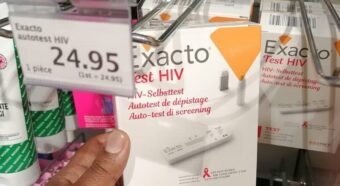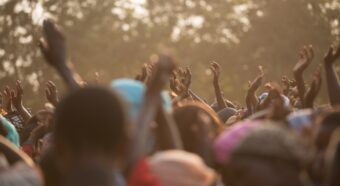Protecting Adolescent Girls and Young Women in Africa in the era of COVID-19
- April 6, 2021
- Non classé
- By Armelle Nyobe
Due to the pandemic in Africa, significant number of the AGYW faces an increased high-risk of HIV infections, child marriage, female genital mutilations, defilement, and teen pregnancies. Although the effects of pandemic have been experienced worldwide, the AGYW in low-income countries including African countries are extremely vulnerable due to limited women rights. In sub-Saharan Africa, AGYW accounts for at least 59% of HIV infections in spite of them comprising only 10% of the population. They are more than 2.5 times likely to acquire HIV than their male peers. The pandemic and preceding government’s lockdown policies, including school closures further exposed girls to HIV risks. In response, the Global Fund and President’s Emergency Plan for AIDS Relief (PEPFAR), among other programs, have invested a total of $200 million reduce the disruptions of the pandemic on AGYW services.
As Emily Ngugi from CCM Kenya narrated: “With COVID 19, scheduled face-to-face interactions were disrupted including national and county Technical Working Group (TWG) meetings that support coordination of the AGYW programmes. The distribution channels for condoms were interrupted specifically in locations where AGYW easily accessed condoms such as tertiary institutions, recreational spaces. Some AGYW were locked down in different counties and had not disclosed HIV status to relatives.” The Kenyan delegation informed the meeting that there was an initial drop in number of AGYW tested for HIV both at the facility and community during the initial phase of the pandemic resulting from initial fears from the pandemic and reduced facility visits. The Government of Kenya, the Kenya Coordinating Mechanism, non-Governmental Organizations, community members, the Global Fund Principal Recipients and Sub recipients in Kenya and other Development Partners have continued to work together to ensure that the AGYW are reached with information and services .

Another country, another experience, Prof Dhally Menda of CCM Zambia, concurred. “In Zambia, 286 out of 9341 AGYW in our AGAPE and Youth Programme dropped out of school due to either pregnancies, marriage or unknown reasons since the pandemic started”. The same was observed in Cameroon and in all African countries.
To mitigate disruptions of the pandemic on AGYW, the African countries adapted its response. For example, the involved traditional or local leaders as champions to reduce teen pregnancies or early marriages and promote girls education; leveraging digital tools such as hot line to ensure AGYW’s rights are protected; scaled up virtual platforms for sub recipients to conduct activities like outreaches in the virtual platforms where feasible; use mobile vans and motorbike service delivery to distribute commodities.
The shared and agreed that the critical lessons learnt during the pandemic were and are still critical to maintain AGYW services: Among them were: the development of guidelines for implementation during pandemic; building capacity of health workers and peer educators; engagement of outreach workers and some peer educators to deliver essential services; (iii) cash transfers for beneficiaries based on vulnerability assessment; clinical outreaches at community level providing the comfort needed by AGYW outside health facilities; use of mobile vans and motorbike to provide prevention commodities in their settings; (vi) and leveraging digital platforms including social media, hotlines, smart TVs were critical to reaching out to the AGYW.
The ACB Executive Director, Mr. Josephat Kakoma, said his organization was compelled to facilitate the sharing of experiences among African countries to inform Global Fund response through the COVID 19 Coordinating mechanism(C19CM), shape the Global Fund Post 2022 strategy and provide a platform for horizontal learning among countries by sharing lessons leant and best practices.
This was achieved through a funding of the Foreign, Commonwealth & Development Office (FCDO).
Author: Prof Dhally Menda-Zambia, Mr Innocent Chikatula-Zambia, Nancy Bolima-Cameroon, Samuel Muai-Kenya, Emily Muga-Kenya and Tapson Ndundu-ACB


